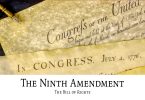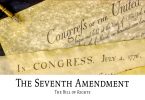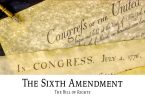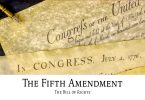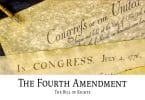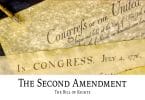Much like the Ninth Amendment does its convoluted best to make sure the government knows that just because certain rights are not written in the Bill of Rights as being for the people does not mean that they are not for the people, the Tenth Amendment tries to do the same thing with the rights of the states. The good news is that the wording of the Tenth Amendment is a little more straightforward than that of the Ninth, making it easier for scholars, and even laypeople, to understand its meaning.
The Tenth Amendment
The powers not delegated to the United States by the Constitution, nor prohibited by it to the States, are reserved to the States respectively, or to the people.
What Does it Mean?
The Founding Fathers were keen that the powers of the Federal government not be too large. Having just come from being under a monarchy where the word of the King was law, they were not eager to put too much power into the hands of a central governmental authority. Even with the plentiful number of people who made up the Federal government, too much power in its hands could easily be concentrated down into just a few, or just one, putting the United States back in the same position it had been in before the Revolution.
The Tenth Amendment was written to make sure the states still kept a significant amount of power for themselves, as a safeguard to the freedoms of everyone in the new country.
This amendment basically says that the Federal government only has the powers given to it in the Constitution. The powers of the Federal government are fully enumerated in the Constitution (unlike the freedoms and rights of the people, which were not fully enumerated there, and had to be addressed in the Ninth Amendment). If the Constitution does not say the Federal government can do something, then it can’t do it.
Powers not particularly given to the Federal government in the Constitution are reserved for the states unless the Constitution has also prohibited those powers to the states. If certain powers were not enumerated for the Federal government or prohibited to the states, then they belong to the people. They might belong to the people anyway, in certain circumstances. The vague wording of the last part of this amendment has been up to the federal courts to interpret over the centuries. The rest of the amendment is pretty straightforward.
Of course, as with anything, there is always room for interpretation. That is part of the reasons the Confederate states believed they were able to secede from the Union during the Civil War—it was based on their interpretation of the Tenth Amendment. The Federal government, of course, had a far different interpretation of the Tenth Amendment in that instance. Unlike the Ninth Amendment, though, the room for interpretation in the Tenth Amendment is far smaller. Essentially, if the Constitution doesn’t say the Federal government can do something, then it can’t, but the states can, and sometimes the people, too.

